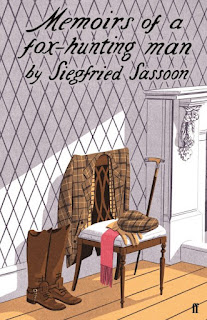A Child's Point of View
Henry James' What
Maisie Knew is a
novel about an unwanted daughter. Maisie, the main character, has a mother and father who divorce one another, then re-marry different people. They split Maisie’s time between their two very wealthy
upper-class households. Maisie is their only connection. It gradually becomes
clear that both parents care little for her. Maisie's mother
reveals that ‘[y]our father wishes you were dead – that, my
dear, is what your father wishes. [. . .] He wishes me dead quite as much’ (p.
135). She goes on, saying ‘[y]ou’re a dreadful dismal deplorable little thing [. . .] And with
this she turn[s] back’ and walks away (p. 138). Maisie’s parents wish they never
had her.
This is also a novel about a child’s
budding understanding of such a relationship. Maisie’s knowledge grows, which
illustrates pictures of who her parents - who are mostly absent form the
novel’s action - really are. For instance, during her early years, the narrator
tells us that Maisie ‘puzzled out with imperfect signs . . . that she had been
a centre of hatred and a messenger of insult’ (pp 18-19). Maisie is intelligent
and knows more than anyone thinks, even if her conceptions are abstract and
incomplete. Described at one point as ‘receptive and profound’, Maisie’s
ability to understand her world develops and deepens (p. 52).
Even in her relationship with her
step-parents (who, in a novel filled with affairs, fall for one another),
Maisie realises that she is a device used in a greater game. It takes a simple
slip in her step-mother’s phrasing to make her realise ‘the first time . . .
[that] as regards herself [and her step-parents] it was not a relationship’ (p.
106). Maisie provides the framework of excuses for her step-parents, Sir Claude
and Mrs Beale, to see each other. Maisie finally realises that these people
need her for their affair; thus leading to Maisie’s grim realisation that she
is dispensable once they are ‘free’ from their marriages.
The novel’s narrative voice points out
the role language plays in Maisie’s growth. Early on, language aids Maisie’s
understanding over events that have already happened. After thinking about the
word ‘toothpick’,
[s]he was familiar, at the
age of six, with the fact that everything had been changed on her account. [. .
.] By the time she had grown sharper . . . she found in her mind a collection
of images and echoes to which meanings were attachable[.] (p. 16)
With each new word, her knowledge
strengthens. Words provide the tools for critical reflection and understanding.
Later, she overhears her governess describe Sir Claude. ‘Maisie had never
before heard the word “sympathetic” applied to anybody’s face; she heard it
with pleasure and from that moment it agreeably remained with her’ (p. 37).
Words, like keys, unlock new areas of Maisie’s burgeoning worldview.
Source:
What Maisie Knew. By Henry James. Pp 222. Ware:
Wordsworth Editions Limited, 2000. ISBN 978-1-84022-412-2.
 |
| Mother and Child, 1928 (oil on canvas) by Marie Laurencin. Detroit Institute of Arts, USA. |


Comments
Post a Comment